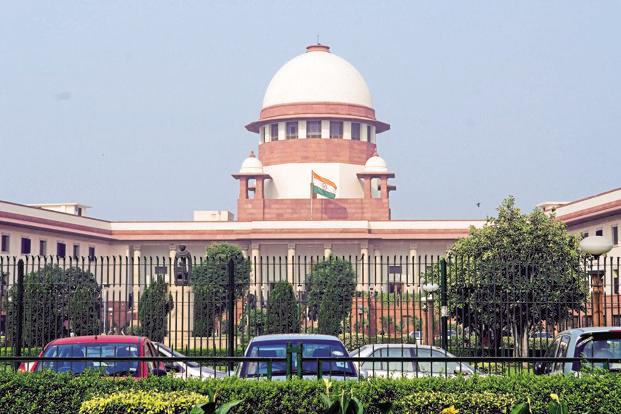Mumbai: In a polity where consensus over substantive issues is a rare commodity, total unanimity among Maharashtra’s politicians in supporting giant human pyramids during the Janmashtami festival would be charming if not for its cynical pursuit of populism.
So, it does not matter that hundreds of youngsters standing on the shoulders of others below to form massive human pyramids to crack Dahi Handi (a pot of curd) hung high above the ground have suffered serious injuries as the pyramids collapsed.
The Supreme Court on Wednesday partially upheld a Bombay high court ruling in August 2014 which placed two key restrictions on the Dahi Handi festival organisers. One, no one below 18 will participate creating the human pyramid. Two, the height of this pyramid will not be higher than 20 feet. The SC told Maharashtra government, which had sought clarity on the Bombay HC ruling, that it had heard the story about Lord Krishna stealing butter but he never did the kind of acrobatics children participating in the festival perform. Dahi Handi festival is celebrated on Krishna Janmashtami. This year, the festival will be celebrated on 25 August.
The ruling provoked an outburst of hyperbole from major political parties in Maharashtra, all of them deeply invested in the Dahi Handi competitions.
The Shiv Sena, which is part of the NDA government at the Centre and in Maharashtra, was the most imaginative. Sena’s Rajya Sabha MP Sanjay Raut asked the judiciary to stay off the “issues of faith” forgetting that the SC had given a ruling over a petition that pointed out that Dahi Handi organisers were flouting the restrictions imposed by Bombay HC.
“Do festivals come under the purview of judiciary? The law ministry should think about this. Chief minister Devendra Fadnavis should intervene and issue an ordinance to ensure that Dahi Handi festival is celebrated without such restrictions”, Raut said.
Mumbai Congress president Sanjay Nirupam asked Maharashtra government to file a review petition in the Supreme Court to “save Maharashtra’s cultural heritage”. Mumbai BJP president Ashish Shelar insisted that efforts be made to declare Dahi Handi festival as “adventure sports” so that it retains its element of adventure and excitement. Maharashtra Navnirman Sena chief Raj Thackeray made the communal cut when he wondered why only “Hindu festivals” were under the judicial scanner and why mosques still continued to play loudspeakers. To be sure, Thackeray did concede that loud music, dance, and commercial interests had crept into the festival over the years. But by and large, all political parties found fault with the very intervention by the Supreme Court.
In the cacophony of competitive populism, all political parties created an impression as if the apex court had banned the festival when it has only imposed certain restrictions in the larger public interest. According to a Times of India report, 650 people sustained injuries during the Dahi Handi festival in 2013. Though the number went down to 360 in 2014 and 129 in 2015, the very lure of building tall human pyramids by getting wiry teenage boys involved has made the festival a risky affair.
Anti-noise pollution activist Sumaira Abdulali says the SC ruling only puts some necessary restrictions in the public interest. “Dahi Handi festival today is not what it used to be before. The festival has been commercialised and politicised, and that is the reason why all political parties are on the same page in finding fault with the SC ruling. What public interest is served by commercially and politically exploiting a tradition and also putting in danger the lives of the participants,” she asks.
The politicisation of Dahi Handi festival is far too apparent to miss. In the entire Mumbai metropolitan region which includes Mumbai and neighbouring cities and townships, politicians of all hues have completely appropriated what used to be a people’s festival.
From state legislators to senior party functionaries to sundry local workers, every political character milks the festival for self-promotion. The festival has degenerated into an opportunity for politicians to engage their cadres and supporters and leverage the crowd mobilisation for political ends. It is this complicity in politically co-opting what was an apolitical tradition that has forced the politicians to react to the SC ruling in exaggerated terms.
Then, there are civic elections in major cities including Mumbai in early 2017. Every effort will be made to fight the elections not on real civic issues but on issues that are in the realms of faith, communal identity and populist passions.

